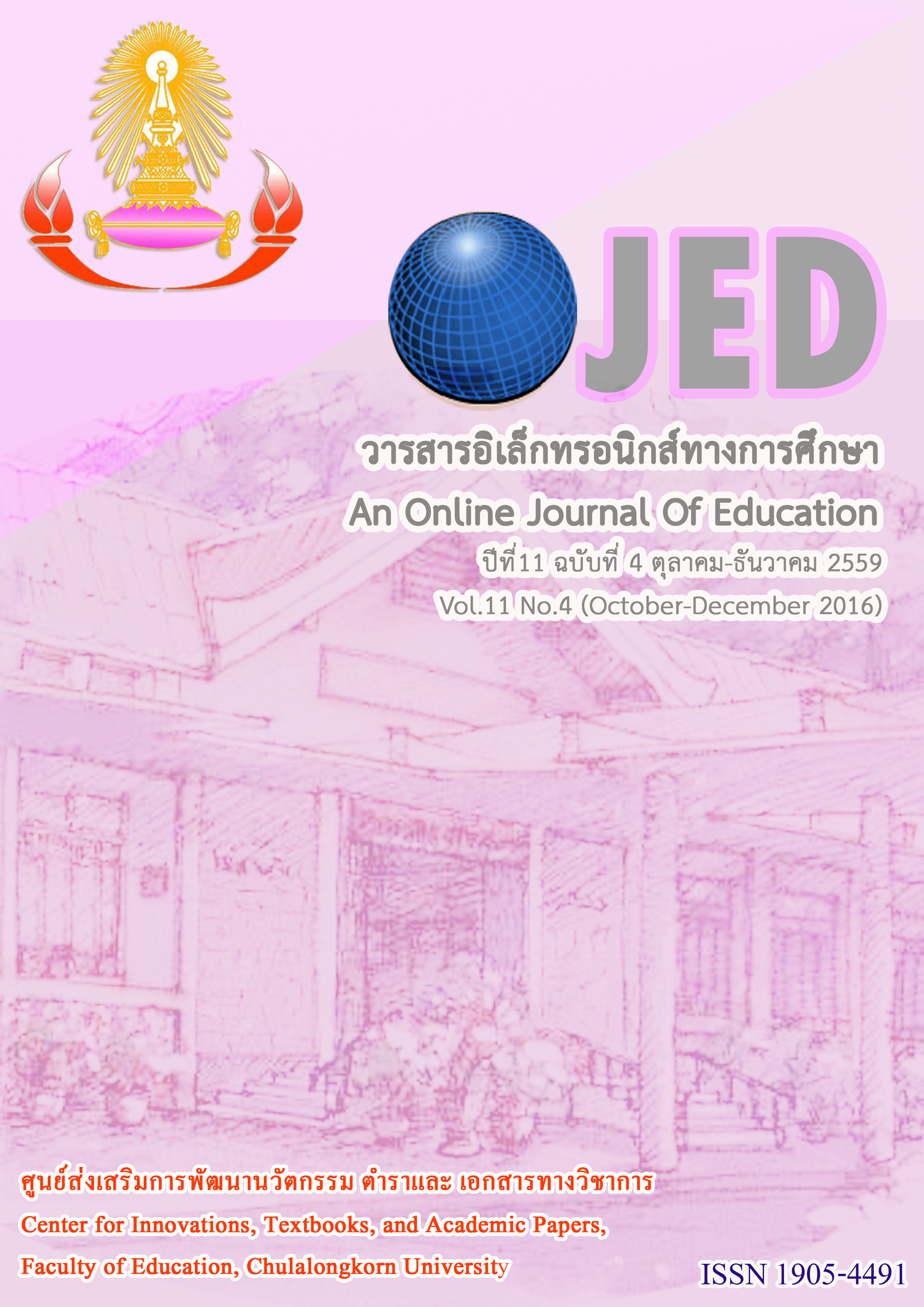ผลของการสอนการอ่านภาษาอังกฤษอย่างมีวิจารณญาณโดยใช้วรรณกรรม ที่มีต่อความสามารถในการอ่านอย่างมีวิจารณญาณของนักเรียนมัธยมศึกษาตอนปลาย EFFECTS OF CRITICAL READING INSTRUCTION USING LITERATURE ON CRITICAL READING ABILITY OF UPPER SECONDARY SCHOOL STUDENTS
Keywords:
CRITICAL READING INSTRUCTION USING LITERATURE, CRITICAL READING ABILITYAbstract
Abstract
The study aimed 1) to examine the effects of critical reading instruction using lietarture on the critical reading ability of upper secondary school students; 2) to examine the students’ opinions toward critical reading instruction using literature. The participants in the study were 55 Mathayom Suksa Six students. The instruments to collect data were critical Reading pre-test and post-test and questionnaire asking students’ opinion after the instruction. Descriptive statistics as mean and standard deviation was used to analyze the data.
The results revealed that 1) the students’ critical reading ability posttest scores were higher than pretest at a significant level (p<0.05). Students are able to follow instructional framework and receive higher score in every aspects of critical reading ability, which are drawing inference, distinguishing facts and opinions, determining purpose and tone, and separating important information. 2) Students had positive attitude toward critical reading instruction using literature. The average rank reading students’ understanding toward drawing inference, distinguishing facts and opinions, deterring purpose and tone, and separating important information was good. However, students did have problems regarding some critical reading abilities such as distinguishing facts and opinions and determining purposes and tones. However, students agreed that using literature in critical reading class could improve critical reading ability.




